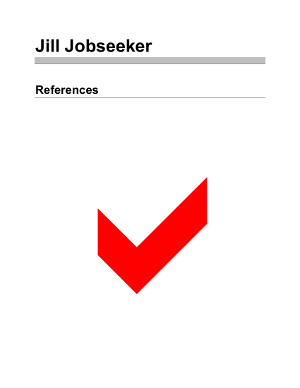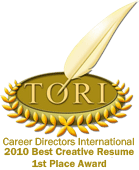
The first week in May is Update Your References Week as sponsored by Career Directors International. If you are looking for a new job or career and haven’t yet renewed your acquaintance with your references, now is the time. If you’re called for an interview today, will you be ready?
A 2010 Society for Human Resource Management (SHRM) survey found 76 percent of organizations conduct reference background checks for all job candidates. The survey defined “reference background checks” as verification of information provided by a job applicant or communication with people regarding the job applicant. This statistic did not include credit and criminal background checks. Prospective employers generally contact 2-3 references for each job candidate.
Reference checks are particularly common in some professions, including science, legal, healthcare, technology, operations, and customer service roles.
Three things can happen with your reference check:
- The reference may provide no additional information to influence your employment prospects.
- The reference helps your chances for landing the job.
- The reference damages your job search.
Nearly 50% of references checks are bad
According to reference checking companies, nearly half of all reference checks result in a negative outcome. This is particularly true when you are paying to have your references checked, because you’re more likely to have issues that would result in a negative reference check. But it is better to know if your references are causing you problems, instead of just wondering.
Unlike a background check or credit check, there is no central “bureau” (like Experian or Transunion for credit reports) for companies to tap into to obtain the information easily. So companies must conduct reference checks with individuals in a position to provide information about you as a candidate.
Choose references carefully
As a consequence, it is important to carefully consider who you provide as a reference to a prospective employer, assuming you are given the opportunity to submit names for the reference check. Even a “friendly” reference may unintentionally create problems for you.
Choose articulate, positive people for your references. Even someone who thinks the world of you won’t be a good reference if they can’t express their thoughts. Ask the reference if they are available during business hours to receive emails and phone calls from employers. They won’t do you much good if they cannot be reached.
Former managers, supervisors, and team leaders are the most useful references.
Ask permission to use each reference, and obtain current contact information, including a phone number and email address. Prepare your references by providing a copy of your current resume and a posting of the job for which you are interviewing. Ask each one to speak about a certain aspect of your experience with them. For example, one reference may be familiar with your sales talents while another may know more about your customer service skills.
List your references’ names and contact information on a page separate from your resume. Do not list references on your resume, and do not include the phrase “References available upon request.”
When I write your resume, you also receive an enhanced reference page that lists your references and other pertinent information. If you aren’t sure how to handle your references, contact me today.
Coming up:
- References Gone Bad: Why hire a reference checking service?
- References Gone Bad: How services check references
- References Gone Bad: How to hire a reference checking service








